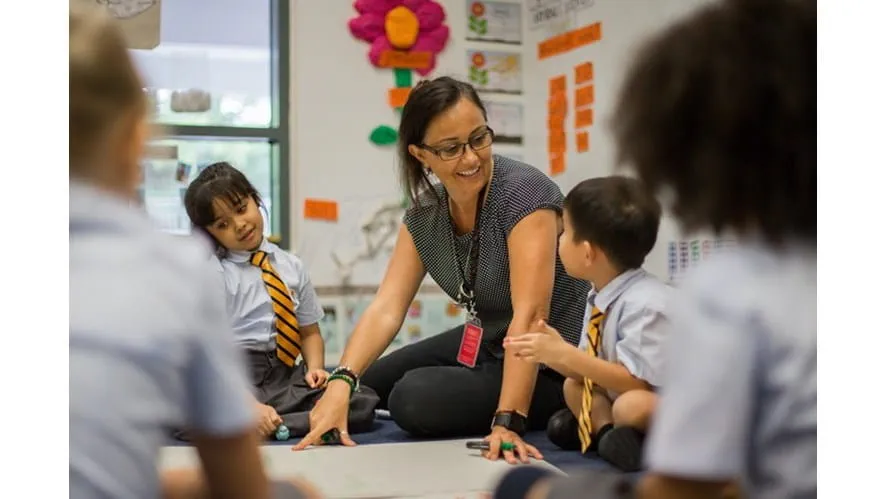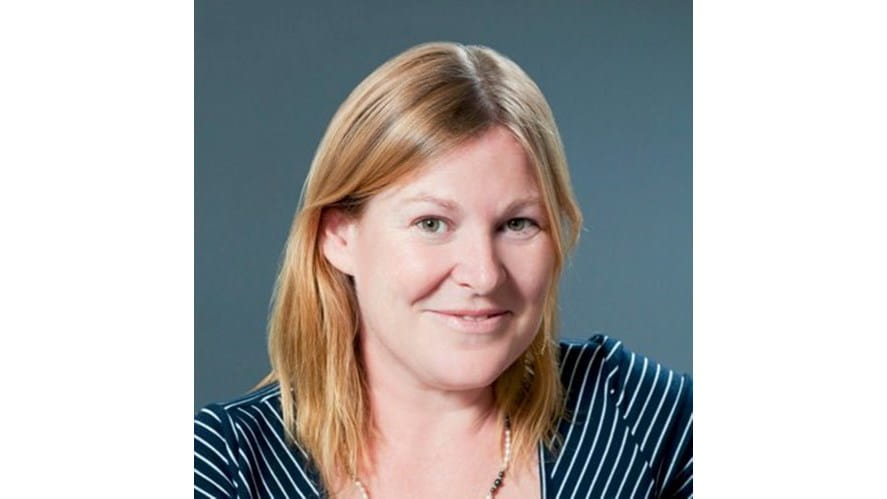We use cookies to improve your online experiences. To learn more and choose your cookies options, please refer to our cookie policy.

Dr Allison Plant shares her love for teaching maths in a meaningful and relevant way, inspiring students around the world. Wherever possible she enjoys teaching outside of the classroom and says that BSKL students have a true desire to learn.

1. What positions, and for how many years, have you had at the school?
I am a teacher of mathematics and I am also lead teacher in further mathematics which is exciting as we have very enthusiastic and highly capable students at BSKL who are extremely ambitious in their desires to learn mathematics to the highest levels.
2. Tell us a bit more about your background teaching experience?
I have a somewhat unusual pathway into teaching. I started out teaching at university mainly in Pure and Applied Mathematics and also in the Engineering Faculty at Uni of Melbourne. I was a PhD supervisor in the areas of IT security and Pure Mathematics, including coding theory. I then moved intoteaching Mathematics to Education students – both future Primary and Secondary teachers – and this is where my passion for Mathematics Education blossomed. About 10 years ago I moved from Australia to China to teach A Level Maths and Further Maths to Chinese “olympiad” level Maths students to help develop their problem-solving skills to support Oxbridge and Russell group University applications. Since then I started working with KS3 and KS4 students as well and realized that my passion for mathematics itself extended into a passion for helping young people develop a love for mathematics. I took a fairly scary leap into the world of high school teaching and I have not looked back since. Besides Australia and China, I have since taught in Kazakhstan and Slovakia (at the Nord Anglia Education School there), and now here at BSKL in Malaysia.
3. What is your main area of interest/specialism?
I am interested in many things, but mostly in Mathematics Education. I am really keen to learn more about how students learn maths: about what are effective strategies for Learning and Teaching. And about how to cultivate my student’s passion for both Maths and for learning. I want to be able to enable my students to get excited about Maths to help them realise their potential. So, in summary – Maths Education is a major interest of mine.
4. How does BSKL differ from other international schools?
In my opinion, the students and the school community here are unique from any other school I have worked in. I feel absolutely blessed on a daily basis to have the privilege to work with such enthusiastic and respectful students. By respectful, I mean the students here are respectful of learning and respectful of the opportunities that this school has on offer. The students here have a true desire to learn and are always keen to try their best. They often say “Thank you!” to their teachers at the end of lessons, and they sometimes even thank you for their homework!! Where in the world can teachers have such a positive experience? It’s a fantastic school in that regard.
5. What has been your biggest career success so far?
While at the Nord Anglia School in Bratislava, Slovakia – I led the Jaguar Land Rover “In Schools Technology Challenge”. This was a very intense year-long project and we made it to the world finals. This was a three-day event in Coventry at the UK. My students won an award at the end of the event, and it was such a well-earned award that I was both shocked and hugely proud of their achievement. Seeing my students succeed in events such as these would be how I would describe my career successes.
6. Describe your teaching style in three words
Challenge-based learning.
7. What do you love most about teaching Maths?
What I love most about teaching Maths is that I get to do Maths everyday! It is really fun pulling apart Mathematics down to its fundamental parts and thinking of the best ways to help students construct and build their mathematical knowledge. I am constantly learning more about Maths, more about learning Maths and more about presenting maths as a meaningful and relevant subject. I absolutely love it!
8. What strengths/skills helped you get to where you are today?
Working in a supportive and highly collaborative school environment in which teachers are encouraged to be creative, to try new things and to develop their professional skills and techniques via research and evidence-based training has really enabled me to grow into the teacher that I want to be. I have been lucky in this school and in my previous schools to work in such an environment. I would say the skill is being able to listen to other people’s ideas and the strength is to be a creative risk-taker who is willing to try new things and even be willing to make mistakes in order to improve. In this way I feel I can move my practice forward to help meet the needs of the students.
9. Which of your childhood teachers stood out and why?
Mr Sweetman was my English Teacher in Primary school. He was anything but sweet. I did learn from him that yelling at children is really not an effective approach toward building trusting relationships. I was blessed in high school to have an absolutely outstanding Physics teacher. His words of encouragement and his challenge-based approach helped me to thrive and to believe in myself.
10. What is the most memorable lesson you have taught?
Anytime we can get out of the classroom! For example, taking my students on a tram ride to the banks of the Danube to estimate / measure the width of the river and the heights of buildings using Trig; taking the Year 7s downtown to the Museum of Islamic Arts to see the beauty of tessellation; developing an understanding of surface areas of 3-D shapes with Year 8s by figuring out how much it would cost to paint the millennium falcon; having quiet time in the library on national sleep day (in bean bags!) with my Year 10s while developing effective approaches to proof writing in order to be successful on the new 9-1 IGCSE syllabus.
11. What is most rewarding about your job?
Watching the students shine in areas other than mathematics is something that both humbles me but also make me realise just how fortunate I am to be able to work with such amazing and inspirational young people – and how fortunate I am to have the opportunity to contribute to their growth and development. This, as well as those individual thank-you notes and cards from students over the years, make teaching an extremely rewarding job.
12. If you weren’t a teacher, what would you be doing?
I would love to live/work near the ocean – perhaps sailing a yacht around the Whitsundays with my dog. I would probably be trying to teach her Algebra and Trigonometry though. I would love to learn to navigate by the stars and wish I had more time to learn about the Cosmos. I am fascinated by ancient cultures relationships with the stars and wonder what impact they had on the development of human philosophies and our search for deeper meaning and our place in the Universe. So, I imagine if I wasn’t a teacher, I would by lying on a boat, on the ocean somewhere, looking up at the stars and pondering life’s mysteries with my dog.
13. What are your favourite hobbies/activities outside of school?
I love learning about Astrophysics and I like to enroll in MOOCS. Outside of academics, I love swimming, cooking and I am a massive fan of road trips with a great soundtrack. I have a humble LP collection and I enjoy dancing in my pyjamas on a Saturday morning. Swimming in the ocean and open-water kayaking are both sports I enjoy, and a bit of guitar playing at the end of the night is always nice. I love spending time with my friends, and really value a good coffee. I get great pleasure out of singing and gardening.